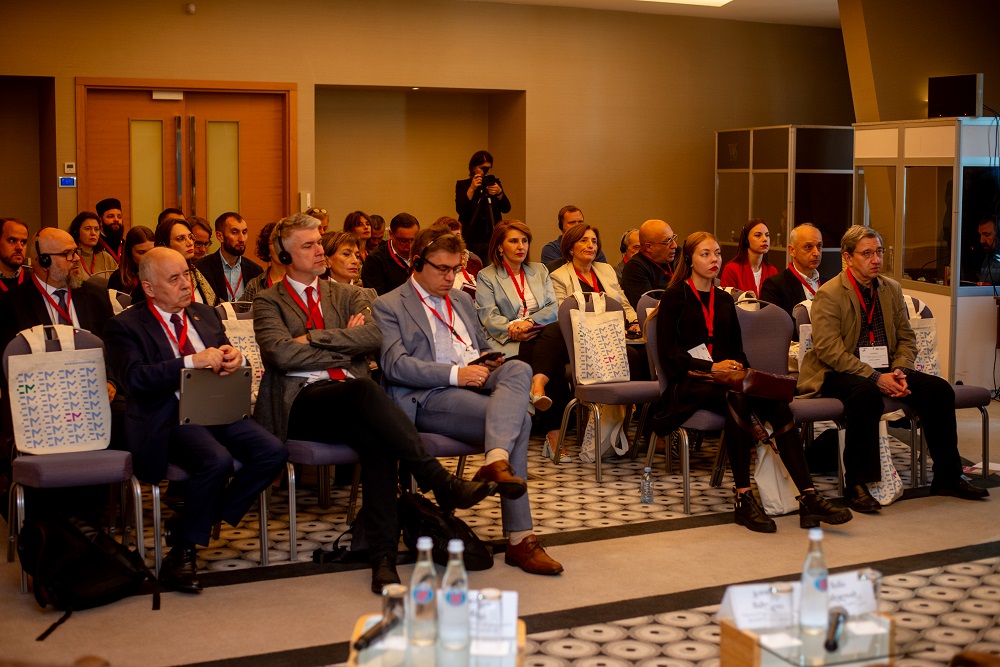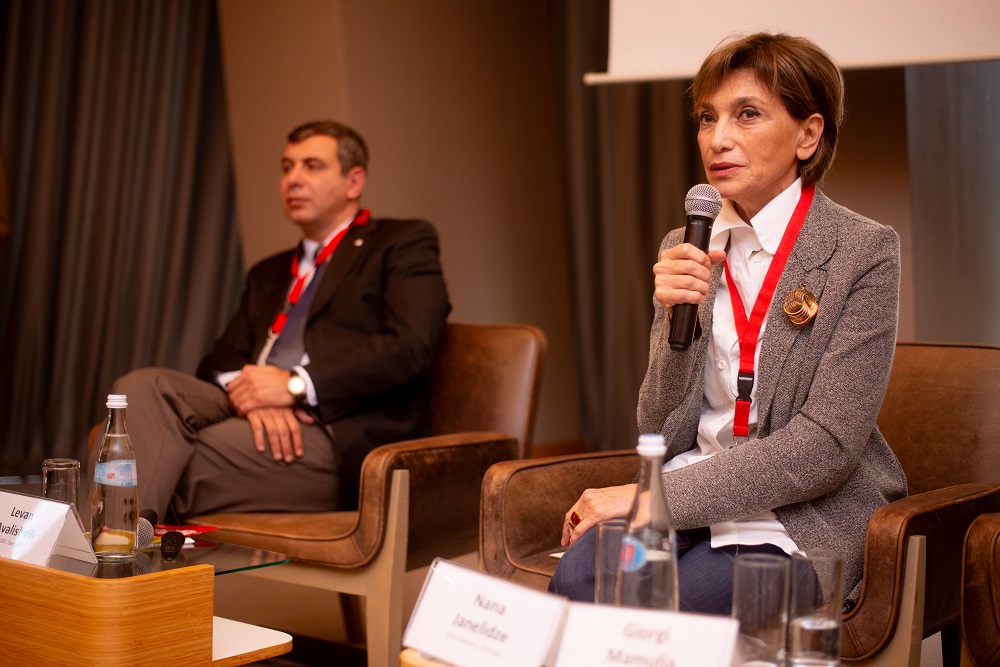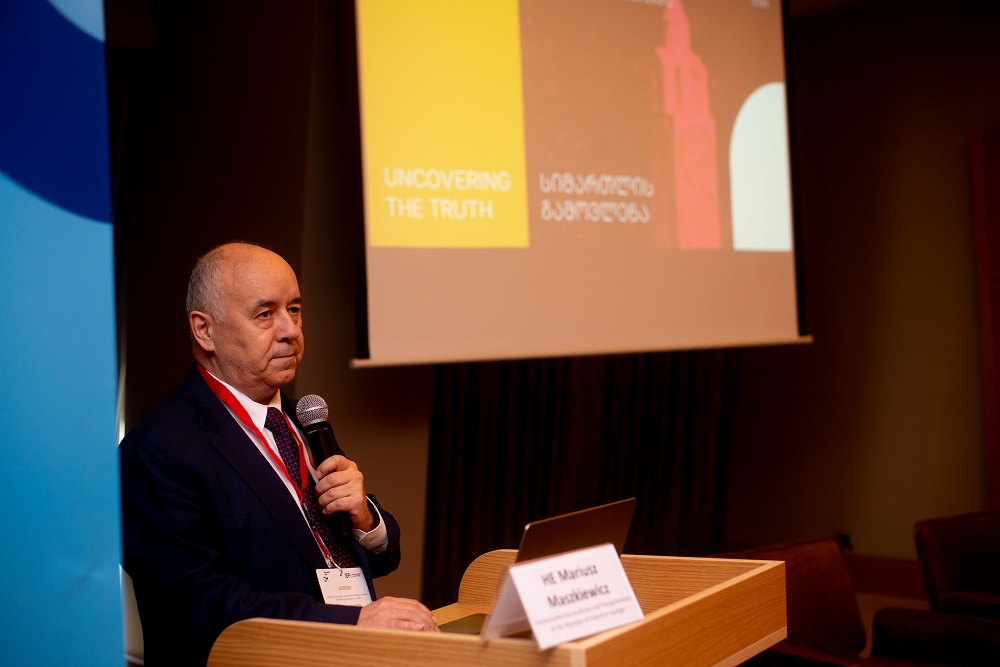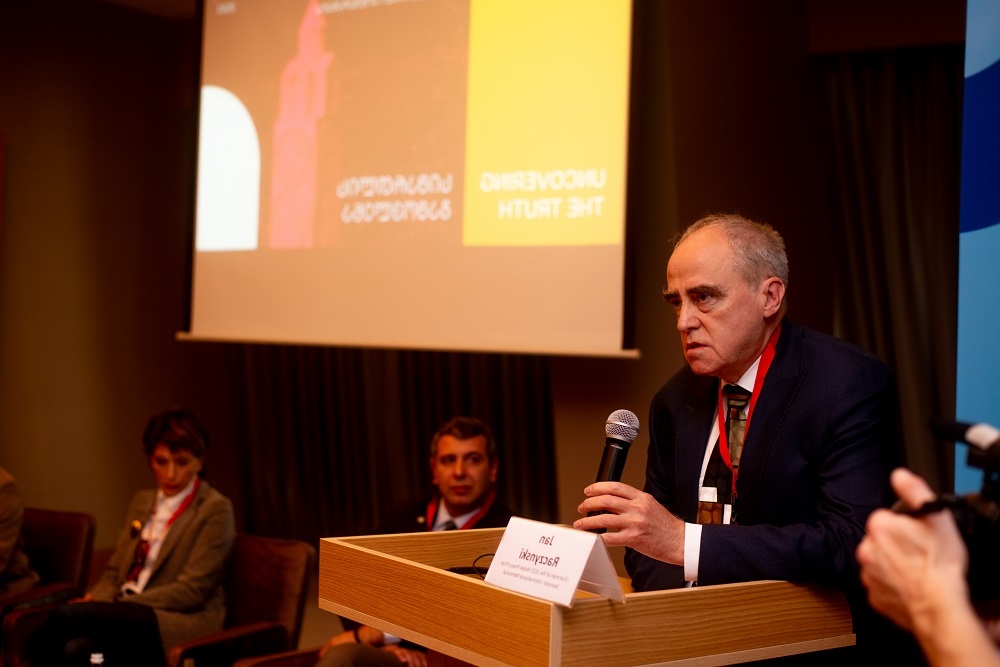


 On October 5-6, 2023, in Batumi, the Institute for Development of Freedom of Information (IDFI), with the financial support of the Juliusz Mieroszewski Centre for Dialogue (Centrum Dialogu im. Juliusza Mieroszewskiego), held an international conference "Uncovering the Truth: Mass Graves of the Great Terror (1937-1938) in Batumi, Georgia".
On October 5-6, 2023, in Batumi, the Institute for Development of Freedom of Information (IDFI), with the financial support of the Juliusz Mieroszewski Centre for Dialogue (Centrum Dialogu im. Juliusza Mieroszewskiego), held an international conference "Uncovering the Truth: Mass Graves of the Great Terror (1937-1938) in Batumi, Georgia".
The purpose of the conference was to study the Soviet past of Georgia and to contribute to the decommunization of the country.
The Ambassador of Poland to Georgia, Mariusz Maszkiewicz, members of the academic circle and experts in the field participated in the conference.
The event was opened with a welcome speech by the co-founder and program director of the Institute for Development of Freedom of Information (IDFI), Levan Avalishvili; The director of the Mieroszewski Center, Ernest Wyciszkiewicz, and the Ambassador of Poland to Georgia, Mariusz Maszkiewicz.
Levan Avalishvili, first of all, thanked the Juliusz Mieroszewski Centre for Dialogue for its support. Also, to the Polish ambassador in Georgia, who pays a lot of attention to the issues of common memory of Georgia and Poland.
"Our responsibility is to deal with the difficulties of the past, to fully understand it and to immortalize the memory of the repressed. The said conference is a platform for dialogue, reflection and action, which through studies and discussions should lead to taking effective steps regarding the issue of mass graves found in Batumi," - Levan Avalishvili.
Mariusz Maszkiewicz and Ernest Wyciszkiewicz emphasized the importance of joint cooperation between Georgian and Polish institutions. Wyciszkiewicz thanked IDFI and noted that the fight against the distortion of history is the cornerstone of building a better future, and the best way to do this is to join forces. Mariusz Maszkiewicz spoke about the common memory of the Polish and Georgian people and ended his address with the words: "A nation without memory is a nation without a future."
At the conference, the chairman of the International Memorial, a Nobel Peace Prize laureate organization in 2022, Yan Rachinsky, gave a lecture on the topic "How to talk about Soviet repressions", where he spoke about the history of the International Memorial, the causes of the Great Terror, the Bolshevik perception of communism and the difficulties of transmitting the memory of repression to new generations.
 The conference consisted of four discussion panels.
The conference consisted of four discussion panels.
The discussion panel "History of communist crimes in Georgia" was chaired by the co-founder and program director of the Institute for Development of Freedom of Information (IDFI) Levan Avalishvili. Film director Nana Janelidze, Giorgi Mamulia, an associate researcher at the School for Advanced Studies in the Social Sciences, and Harrison King, a doctoral student at the University of California, participated in the discussion. The first panel, entitled "Batumi mass graves: archaeological and anthropological studies", was chaired by Anton Vatcharadze, head of the Memory and Disinformation Studies Direction of the Institute for Development of Freedom of Information (IDFI). The press speaker of Batumi and Lazeti Diocese, Father Ilia Khinikadze presented the report; Forensic anthropologist from Medical University of Wroclaw, Łukasz Szleszkowski; Archaeologists from the Institute of National Remembrance (IPN), Angelika Slodka and Tomasz Borkowski.
The second panel - "Victims of Soviet terror - problems of documentation" was led by the deputy director of the Juliusz Mieroszewski Centre for Dialogue, Lukasz Adamski. The speakers of the panel were Sergei Prudovsky, a member of the International Memorial; Director of the National Archives Agency of Moldova, Igor Casu; Mieroszewski Centre Research Coordinator, Maciej Wyrwa and Head of the Memory and Disinformation Studies Direction of the IDFI, Anton Vatcharadze.
The third panel, "The role of museums in commemorating Soviet political repressions", was chaired by Irma Dimitradze, journalist of "Batumelebi" media outlet. Speakers of this panel were the director of Sybir Memorial Museum, Wojciech Śleszyński; Director of the National History Museum of Moldova, Ludmila D. Cojocaru; Director of the Center for Research and Development of Natural and Cultural Heritage of Georgia, Mikheil Tsereteli and the author of the concept of Davit Sarajishvili Memorial Museum and Museum of Repressed Soviet Writers, Natasha Lomouri.


The fourth panel titled "How to popularise knowledge and how to learn about Soviet repressions" was chaired by Natasha Lomouri. The speakers were the chairman of the association Gulag.cz, member of the international memorial board, Stepan Cernousek; Yulia Balabanova, participant of the Perm-36 virtual museum project; Center KARTA editor and representative, Justina Avci, representative of the United Transitional Cabinet of Belarus, Alina Koushyk, and Assistant Professor of the History of East Europe and East Central Europe, Helmut Schmidt University, Melanie Hussinger.
After the event, the guests of the conference together with the descendants of the repressed visited the mass graves of the victims of repression in Batumi.
Please find the agenda of the conference here.
The event was organized with the financial support of the Juliusz Mieroszewski Centre for Dialogue (Centrum Dialogu im. Juliusza Mieroszewskiego), Poland.